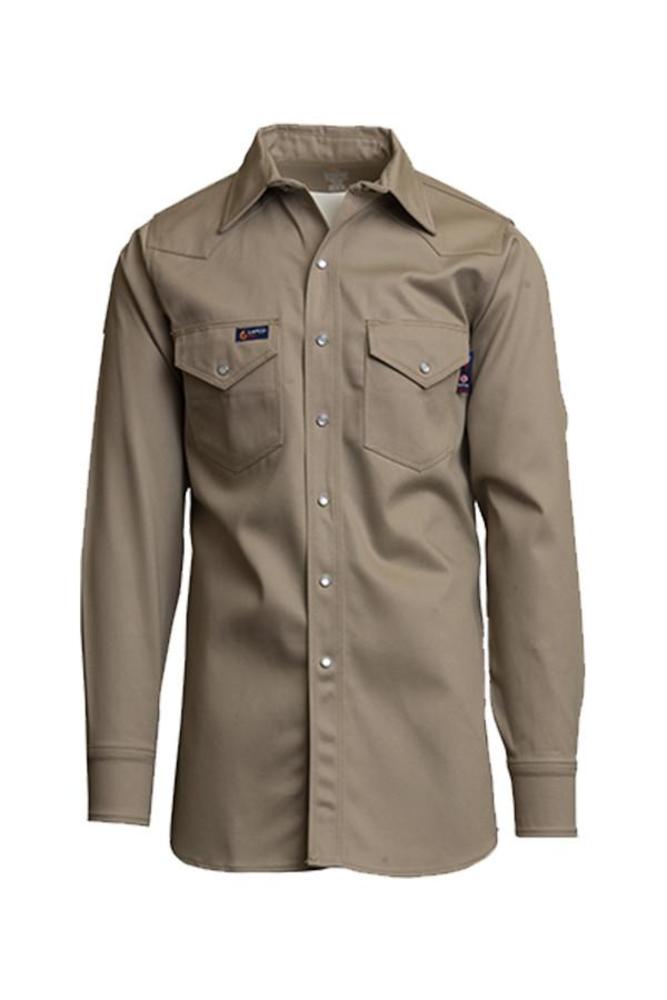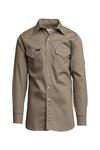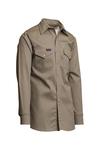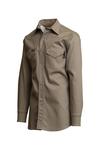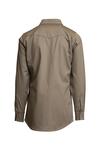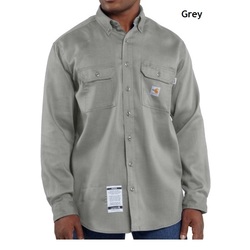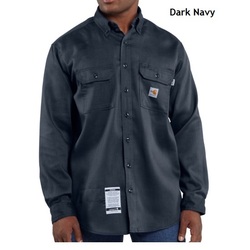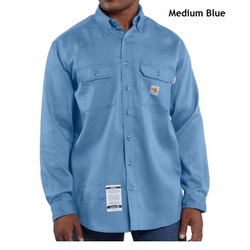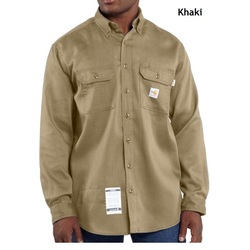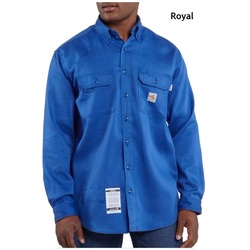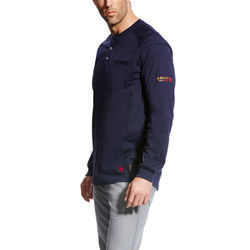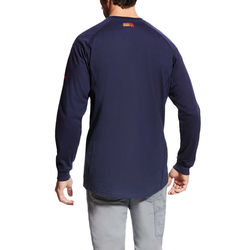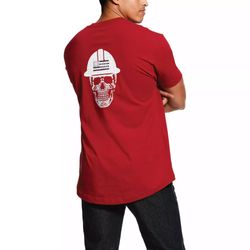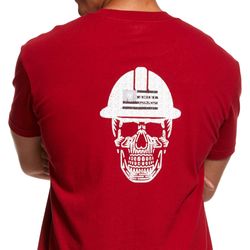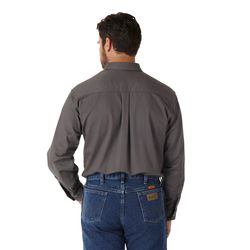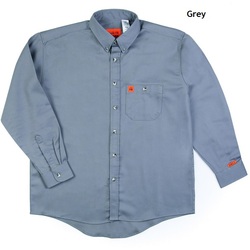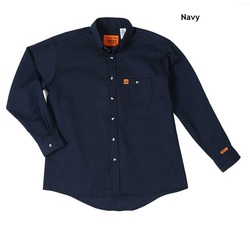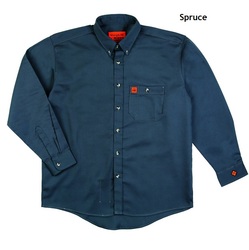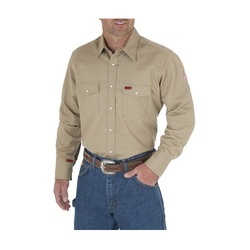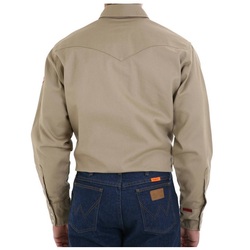$70.00
You save $12.00
Lapco INKWS Flame Resistant Khaki Welding Shirt
sku: INKWSLapco INK Flame Resistant Khaki Welding Shirt
DESCRIPTION:
LAPCO FR welding shirts have the snaps and heavier materials that welders prefer. Welders do their best most consistent work when they are comfortable in position and protected. Designed for welders by welders. These shirts simplify work life while including miriad features or protection, compliance, and comfort.
- Four rows of lock stitching on the front placket to prevent unraveling.
- Double needle stitching on pockets, flaps, and shoulder seams.
- Sewn with Nomex® thread.
- White Pearl Snap front placket, pocket, and cuff closures.
FABRIC
- 9oz. 100% Flame-Resistant Cotton Twill
- Moisture Management Finish
SAFETY
- ATPV 13.2 cal/cm²
- HRC 2
- ASTM F1506
- NFPA 70 E
- UL Classified NFPA 2112
- NFPA 1977
CARE INSTRUCTIONS:
Home Laundering
Lapco FR clothing can be washed, dried, and ironed if necessary. Conventional home washing methods will not alter the flame -resistant properties of the fabric when employed correctly.
It is important that the garments be free of stains that could be flammable. If stains cannot be removed at home, washing periodically at a commercial laundromat is recommended. Difficult or profound stains wash out more easily if they are pre-washed. The stain should be rubbed with liquid detergent or another product specified for pre-washing. The pre-wash should sit long enough to penetrate the stain and loosen the soil. Do not use any pre-wash product containing bleach or hydrogen peroxide, as these chemicals will alter the flame-resistance of the fabric, and consequently, the garment.
Detergents and other Washing Products:
It is important to use an effective detergent that does not contain softener, bleach, or hydrogen peroxide.
There are a variety of fabric softeners and starches on the market, but some of these will affect the flame resistance of the fabric; therefore, it is not recommended to use these products on your flame-resistant garments.
Another issues to consider is water quality. Hard water contaings salts like calcium and magnesium. The minerals can depost layers of buildup on the fabric that are difficult to remove and can decrease the flame-resistance of the garments over time. Soft water, on the contrary, can reduce the consumption of detergent, improve wash quality, and will not affect the flame-resistant properties of your garments.
The use of soaps is not recommended. Soaps can form an insoluable film on your garments, and can be flammable.
Washing/Drying Guide:
Garments should be separated into light colors and dark colors to avoid color transfer between garments.
When washing your garments, it is important not to overload the machine. This will ensure an optimum wash and avoid wrinkles. The load size should allow garments to move freely during the wash and rinse cycles.
The water temperature should be set to "hot" when washing heavily soiled garments. Less soiled garments should be washed on a lower temperature setting to extend the color retention of the fabric. Your flame-resistant garments can be washed at a temperature of up to 167 degrees F.
Your garments can be machine or line dried. When machine drying, garments should be removed from the machine immediately when they have dried, or while still slightly damp. Over drying can result in excessive shrinkage. Drying times vary depending on the load size.
Steaming or common ironing can be used with your flame-resistant garments. Ironing, without the use of starch, will not have a negative effect on the garments flame-resistant properties.
Dry cleaning is effective at removing grease and oils that are difficult to remove using conventional laundering techniques. Dry cleaning is not recommended for our denim garments, due to possible discoloration.
